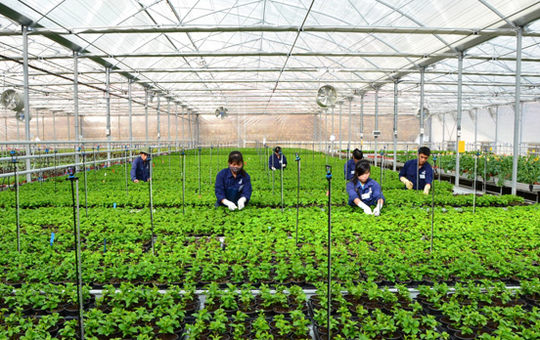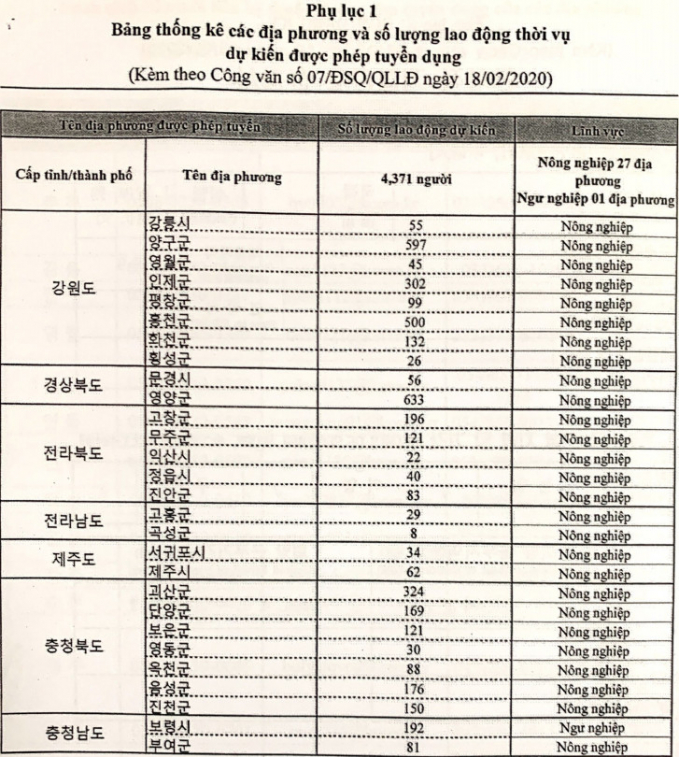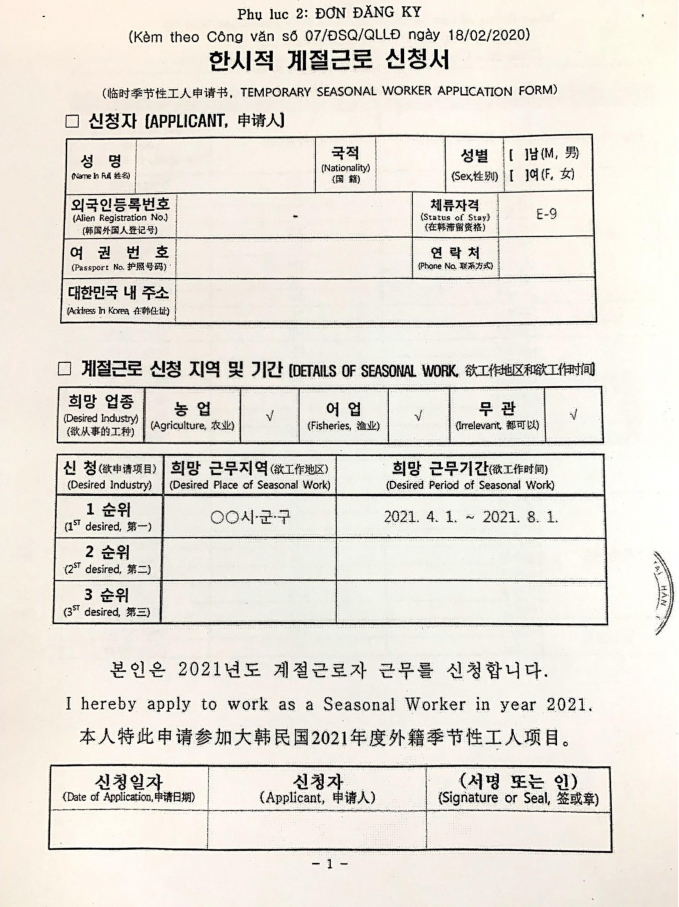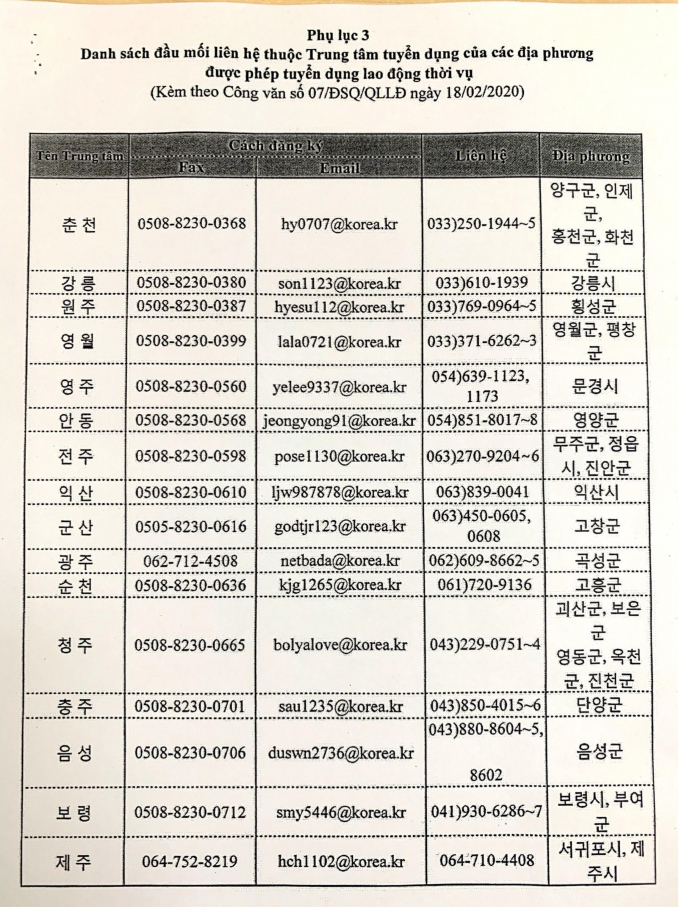May 29, 2025 | 23:32 GMT +7
May 29, 2025 | 23:32 GMT +7
Hotline: 0913.378.918
May 29, 2025 | 23:32 GMT +7
Hotline: 0913.378.918

Korea continues to allow E-9 workers with expired contracts to be transferred to do temporary works.
The South Korean Ministry of Employment and Labor officially announced on February 16, 2021 that it continues to allow E-9 employees whose contracts have expired, to be transferred to do temporary jobs in order to solve the shortage of seasonal workforce in agriculture and fishery sectors due to impacts of the Covid-19 pandemic.
Foreign workers who are allowed to change, are E-9 employees with contracts having expired for three years or four years and 10 months. They should have been granted a delay for exit by the South Korean Ministry of Justice due to the Covid-19 pandemic that makes them unable to return to their home country.
Those who are not permitted to make the change, are illegal residents and E-9 agriculture and fishery workers who have expired over the times of job or workplace change allowances.
In the agricultural sector, some 27 localities at the district/city level are accepted to employ an estimated 4,179 workers.
In the fishery sector, one locality is allowed to employ an estimated 192 people.

Statistics of localities and the number of employees planned to be recruited.
Regarding the allowed working time, during the period from March 2, 2021, to March 31, 2022, employees can choose a continuous working time from over one month to a maximum of five months, but cannot exceed the date March 31, 2022.
The salary of E-9 workers who change to the seasonal laborers is paid higher than the prescribed minimum level. They can participate in occupational accident insurance (compulsory for agriculture and fishery households). Food and accommodation expenses shall be paid by employees (in cases that the employer can provide meals and accommodation, seasonal workers must pay for such expenses according to prescribed rules).
The time for registration will be from March 2, 2021, to February 28, 2022. E-9 employees can choose one of the following three options to register:
Option 1: Visit the website www.eps.go.kr to register for change to seasonal labors.

Application form to register for works in the field of seasonal labor.
Option 2: Bring the Alien Registration Card for registration at the local Ministry of Labor and Employment recruitment centers that are allowed to recruit seasonal workers.
Option 3: Fax or email the application to the recruitment centers of localities that are allowed to recruit seasonal workers.

List for contact of recruitment centers at localities that are permitted to recruit
Workers who register to convert to seasonal laborers will be added 10 points if they take the Korean language test after returning to their home country.
Translated by Kim Khuyen

(VAN) The mutual export of agrifood products between the European Union (EU) and the United Kingdom (UK) must occur again without certification, border controls or other red tape. This was agreed at the UK-EU summit.
/2025/05/22/5121-2-173645_677.jpg)
(VAN) NBSAP Tracker identifies strengths and areas for improvement in the National Biodiversity Strategy, based on each region’s priorities and capacities.

(VAN) The draft amendment to the Circular on rice export trading stipulates a periodic reporting regime for rice exporting enterprises.

(VAN) Dong Thap farmers attained an average profit margin of 64% during the summer-autumn 2024 crop (first season), while An Giang and Kien Giang farmers followed with 56% and 54%, respectively.

(VAN) As a doctoral student doing research on renewable energy and electrification at Harvard University, the author shares his musings on electricity, nature, and countryside memories.

(VAN) The decree on Extended Producer Responsibility (EPR) ensures transparent management and disbursement of support funds, avoiding the creation of a “give-and-take” mechanism.

(VAN) Hue City rigorously enforces regulations regarding marine fishing and resource exploitation, with a particular emphasis on the monitoring of fishing vessels to prevent illegal, unreported, and unregulated (IUU) fishing.